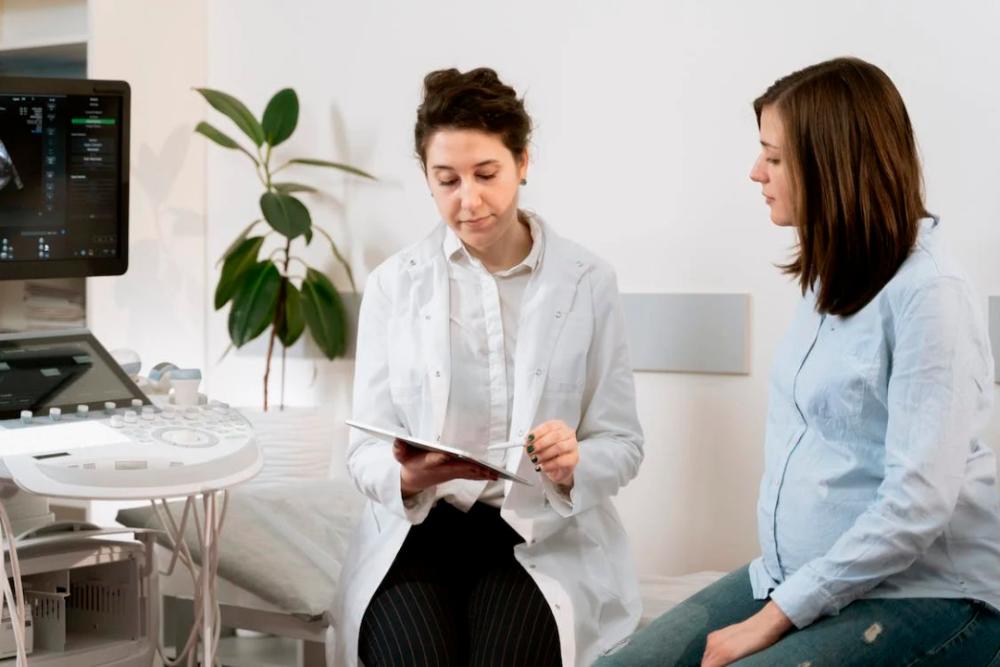KUALA LUMPUR: Women are encouraged to do regular gynaecology check-ups as the growths of uterine fibroids and ovarian cysts may be asymptomatic and may go unnoticed by many.
Consultant Obstetrician, Gynaecologist and Fertility Specialist at the Sunway Medical Centre Velocity (SMCV), Dr Farah Leong Rahman said that fibroids and cysts are not hereditary - meaning they are not passed down from one generation to the other, however, they can run in the family.
“It is important to have regular check-ups with your doctor to do an ultrasound scan to monitor the size of the fibroids or cysts and to review your symptoms. Not all fibroids or cysts need surgery. However, if you do have symptoms or planning to conceive, your doctor can recommend the right treatment for you.
“There is still no evidence that can help to prevent the formation of fibroids or cysts. But practising good health and maintaining a well-balanced diet is good for your overall well-being,” she said in a statement.
Dr Farah said that most women with fibroids and cysts have no problems getting pregnant, but depending on the size and location of fibroids, it may affect one’s fertility.
“Both fibroids and cysts usually do not interfere if someone is trying to get pregnant. However, some of these conditions may cause the fallopian tubes to be blocked or make the environment less conducive for embryo implantation.
“This is especially so in fibroids that are located in the lining of the womb, where the treatment depends on the symptoms and surgery is only indicated if it can improve the chances of pregnancy,” she said.
Another Consultant Obstetrician and Gynaecologist at SMVC, Dr Wong Yen Shi shares a similar view, saying that fibroids are non-cancerous growths that develop from the muscle of the uterus and are often found in women during their reproductive years.
“Ovarian cysts, however, are sacs containing mostly fluid, occasionally tissues or blood that grow within the ovaries or on its surface. Unlike fibroids which are benign (non-cancerous), cysts can be benign or malignant (cancerous).
“This is where consultants will use ultrasound and CA125 tumour marker test to differentiate a benign cyst from a malignant one. Ovarian malignancies peak at the age of 60 to 65 years. However, most cysts remain benign.” reassured Dr Wong.
She said many cysts regress on their own in months, and harmless cysts, such as follicular cysts or corpus luteal cyst, grows and regresses with a woman’s menstrual cycle.
Cysts and fibroids can also occur concurrently – as the condition varies from patient to patient, management and monitoring depend on the size and respective symptoms, she added.
She said that while the exact causes of fibroids remain unknown, hormones, genetics and growth factors are thought to be a factor in these occurrences.
“Like fibroids, cysts occur naturally. Conditions such as pregnancy, pelvic infections, endometriosis and a history of ovarian cysts can increase the likelihood of developing ovarian cysts. Fibroids and cysts may also present with similar symptoms.
“For instance, irregular or painful period, compressive symptoms such as frequent urination or constipation, abdominal distension or bloating, back pain, unexplained weight gain or even painful intercourse,“ she said.
According to Dr Farah, smaller cysts usually do not require treatment and would be monitored for growth, whereas larger cysts would require surgical removal through either laparoscopically or open surgery.
“Surgery remains the permanent solution for the treatment of fibroids. Where fertility is a concern, myomectomy (removal of fibroids) can be done via open surgery, laparoscopically or via hysteroscopic myomectomy depending on the size and location of the fibroids,” she said.
For women who no longer desire conception or are in the post-menopausal stage, she said, the option of hysterectomy (removal of the womb) would be considered, adding that for patients who do not require surgical intervention, giving medical relief for symptoms such as heavy menstrual bleeding and painful period is essential.
She said the biggest worry about having fibroids during pregnancy is the risk of early delivery.
“In some cases, it can cause severe pain where fibroids outgrow their blood supply. If the fibroid is large, it can cause malposition of the baby where the baby’s head may not turn down even at term,” she added.
As for cysts during pregnancy, she said, it usually does not cause any harm except if the cyst is big enough to cause torsion or rupture.
In such a case, they are advised to seek advice from a doctor before embarking on a pregnancy journey to ensure all is good, said Dr Farah. -Bernama














